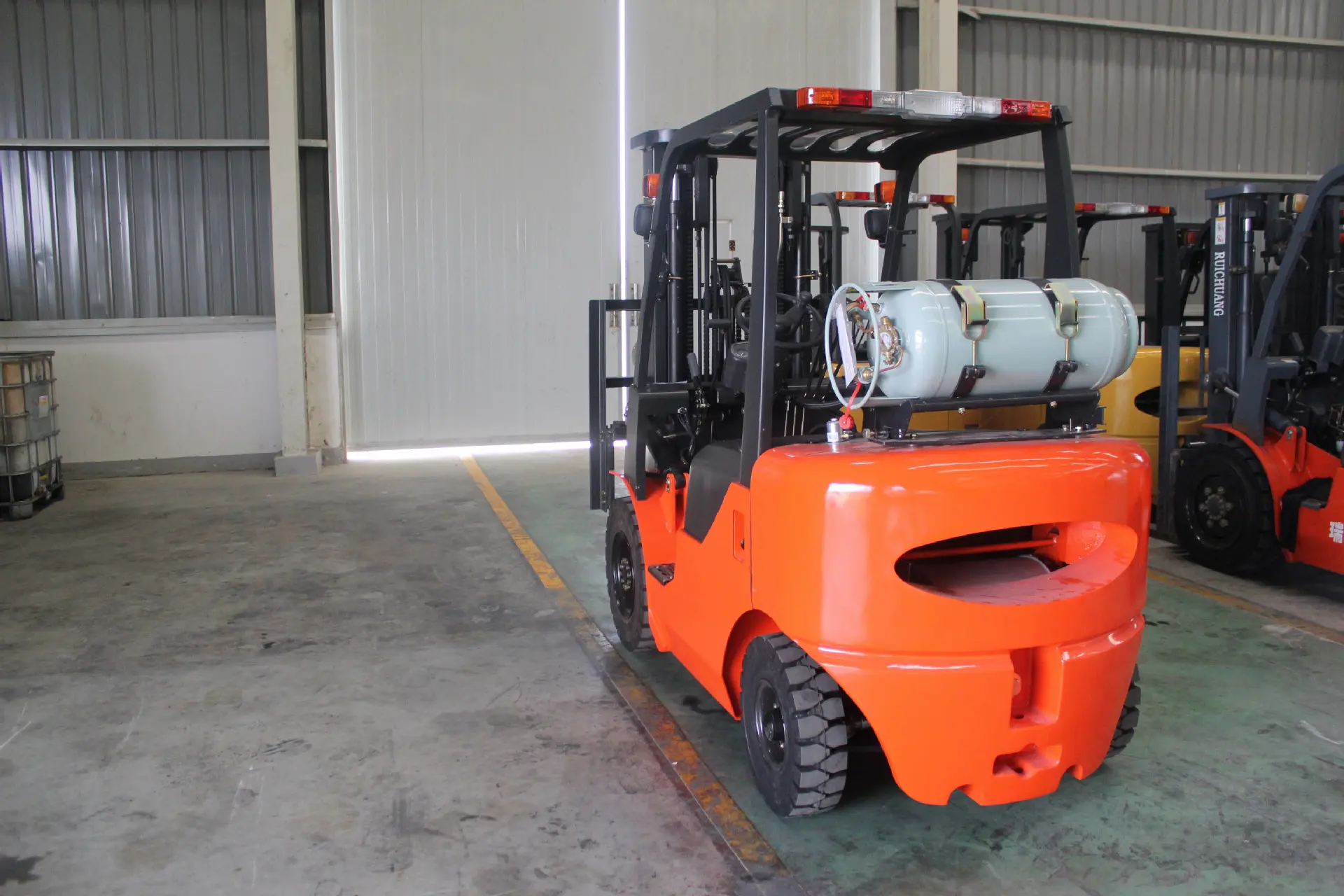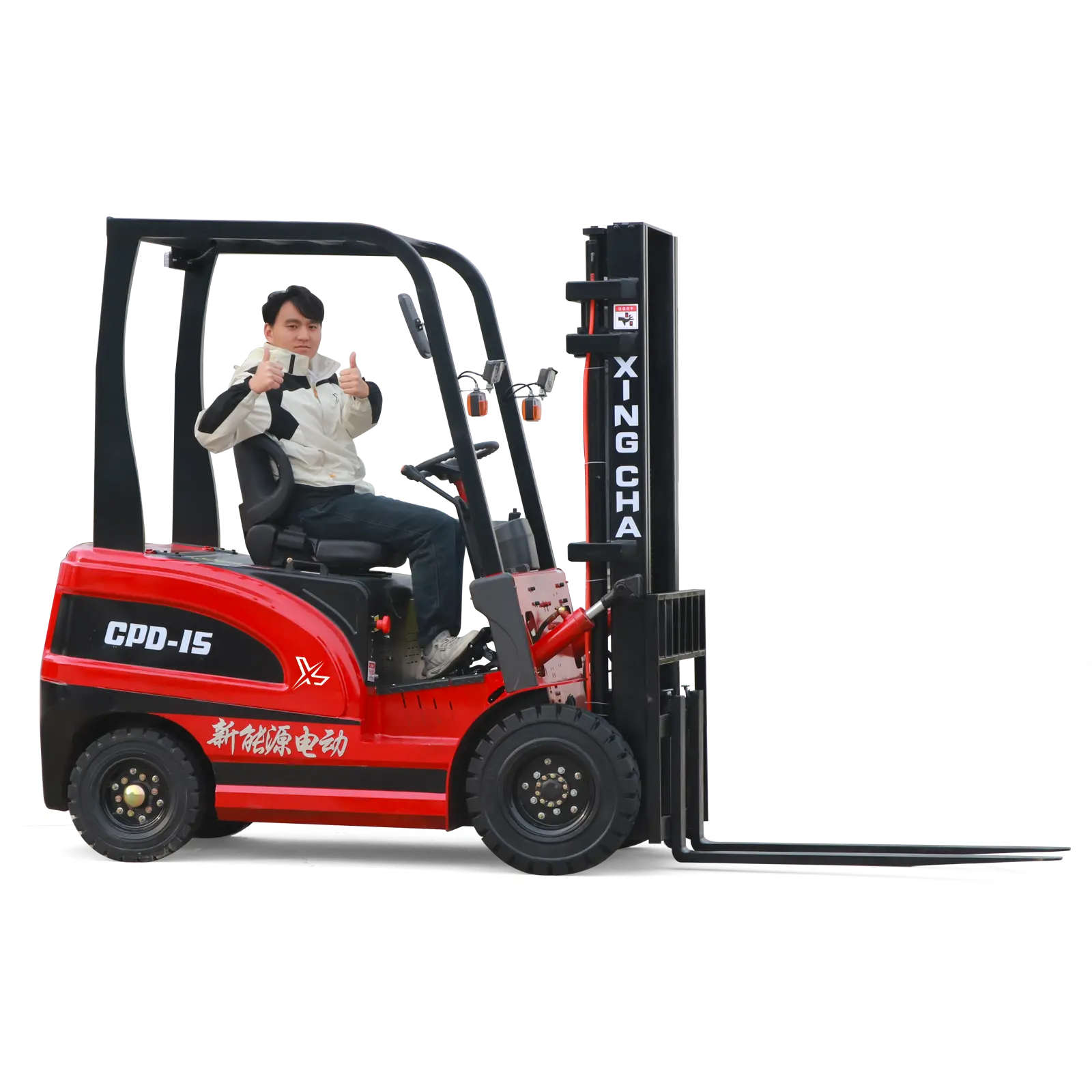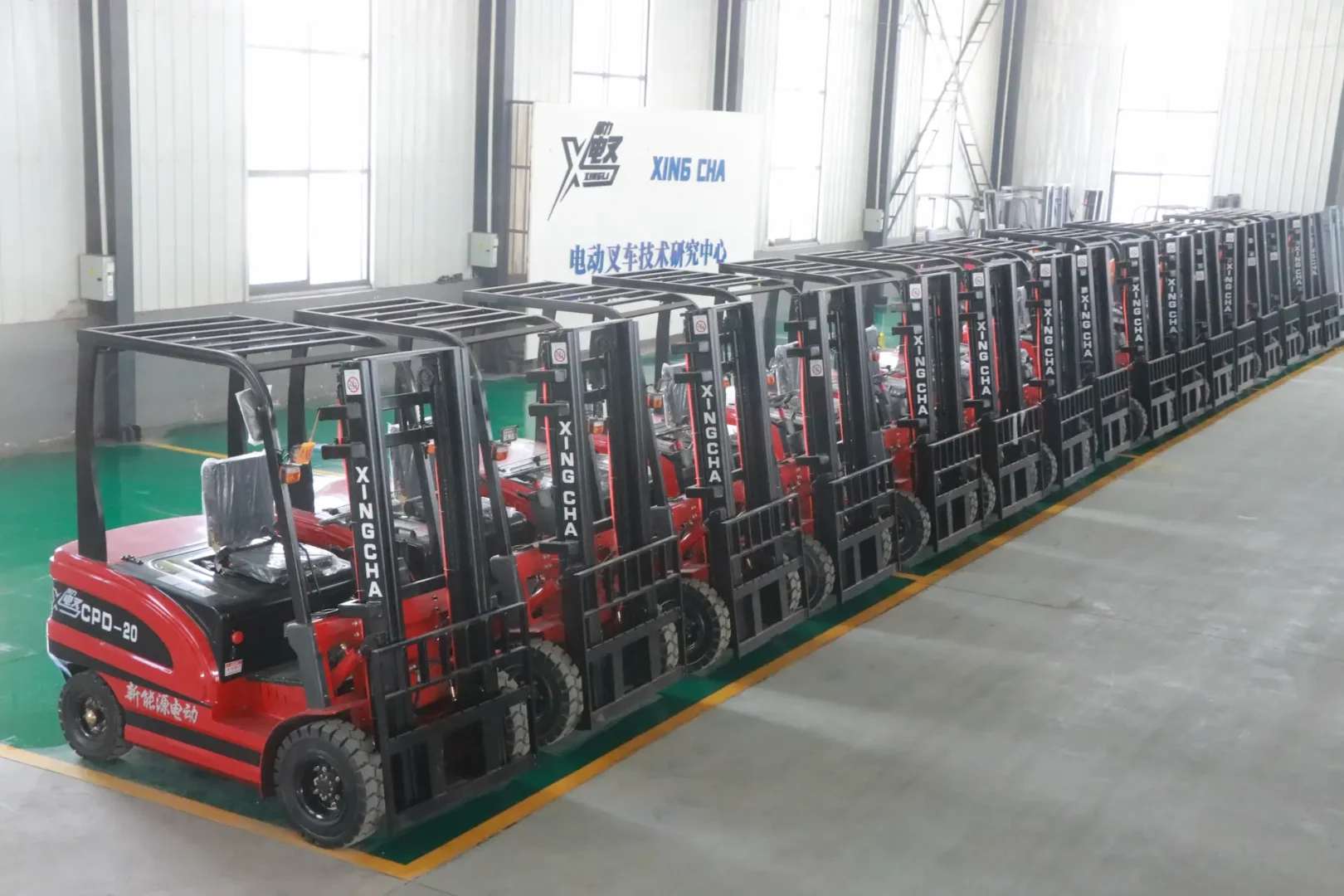Introduction
Forklifts are an essential piece of equipment in many warehouses, distribution centers, manufacturing facilities, and other industrial settings. These powered industrial trucks allow workers to lift and transport pallets of goods and materials efficiently. There are two main types of forklifts – propane and electric. Both have their advantages and disadvantages.
Propane forklifts use an internal combustion engine that runs on liquefied petroleum gas. This gives them a long runtime before needing to be refueled. Electric forklifts operate using a battery that must be periodically recharged. They produce no emissions, making them better for indoor use.
When choosing between electric and propane forklifts, companies must consider factors like upfront costs, performance needs, operator safety, and environmental impact. This article will compare the pros and cons of each type to help determine which is best for different applications. It will look at cost, speed and power, emissions, refueling and recharging needs, safety, comfort, and maintenance. With this information, fleet managers can select the right forklift to maximize productivity and return on investment.
Propane Forklifts
Propane forklifts are powered by internal combustion engines that run on propane fuel. Here’s an overview of how they work and their benefits:
Propane is stored in high-pressure tanks on the forklift. The propane is injected into the engine and combined with air. This propane-air mixture is then ignited by a spark plug which causes small controlled explosions that move the pistons up and down. This provides the power to turn the drive wheels of the forklift.
Propane forklifts offer several advantages:
- Power and Torque – The combustion engine of a propane forklift provides strong torque and horsepower for heavy lifting and fast acceleration. This makes them well-suited for demanding warehouse and loading dock environments.
- Fast Refueling – Propane tanks can be refilled or exchanged quickly, minimizing downtime. This allows propane forklifts to operate productively for long shifts. Most tanks can be refilled in 5-10 minutes.
- Proven Reliable Technology – Internal combustion engines have been refined over decades. Propane forklifts utilize reliable, familiar technology. Technicians are readily available with parts and expertise to maintain them.
- Long Run Times – A tank of propane contains enough fuel to run a forklift for an entire 8+ hour shift in most cases. Some units can operate even longer on a single tank.
Propane forklifts offer the strength, speed, and rapid refueling capabilities needed for busy warehouse and loading operations. Their powerful combustion engines provide essential torque and horsepower.

Electric Forklifts
Electric forklifts run on batteries that power an electric motor. They do not produce any emissions as they operate, making them a cleaner option compared to propane forklifts. Electric forklifts tend to operate very quietly as well, producing less noise pollution in warehouses and other indoor spaces.
Some key benefits of electric forklifts:
- Zero emissions – Electric forklifts do not produce any exhaust or emissions as they operate. This makes them ideal for indoor use in warehouses, factories, etc. where air quality needs to be maintained.
- Lower noise – Without a combustion engine, electric forklifts operate very quietly. This reduces noise pollution, making for a more comfortable work environment.
- Energy efficient – Electric forklifts are generally more energy efficient than propane models. The battery is charged efficiently and does not waste energy like a gas engine does.
- Lower maintenance – Electric forklifts have fewer parts than propane models, so maintenance costs are generally lower. There’s no engine, muffler, fuel system, etc. to maintain.
- Tax incentives – Some jurisdictions offer tax incentives and rebates for utilizing electric forklifts to encourage their environmental benefits.
The main downside of electric forklifts is that they need to be recharged periodically. Operators need to plan and manage the charging schedule to ensure the forklift is ready to go when needed. But the environmental and cost benefits often make them a smart choice for many warehouse and material handling applications.

Cost Comparison
When deciding between an electric or propane forklift, cost is a major factor to consider. Here’s an overview of the key cost differences:
Purchase Prices
Propane forklifts tend to have lower upfront costs than electric models. A new propane forklift can cost $15,000 – $30,000, while an electric model may cost $20,000 – $40,000. The lower purchase price for propane models makes them attractive for businesses with tighter budgets.
Fuel/Charging Costs
Ongoing fuel costs for propane forklifts are generally lower than electricity costs for charging electric forklifts. Propane costs around $2 – $3 per gallon, while electricity costs can vary widely by region, from around 6 cents to over 20 cents per kWh. With propane, costs are predictable based on usage. Electricity costs can fluctuate and may depend on time-of-day rates.
Maintenance
Over the long run, electric forklifts tend to have lower maintenance costs. They have fewer moving parts than internal combustion engines and don’t require engine tune-ups or oil changes. The batteries do need occasional replacement, at a cost of $3,000 – $5,000 every 3-5 years. Overall, electric forklifts have about 50% lower annual maintenance costs compared to propane models.
So in summary, propane forklifts are less expensive to purchase upfront, while electric forklifts have lower operating costs in the long run. Businesses should consider their budget, expected usage, and ownership period when weighing these cost differences. Proper maintenance and operation practices can also impact the lifetime costs of either type of forklift.
Performance Comparison
When it comes to performance, both electric and propane forklifts have their advantages and disadvantages.
Power
Electric forklifts tend to have less raw power than propane models. The electric motor often provides enough power for indoor use, but may struggle with heavier loads or on inclines. Propane engines generate more torque and horsepower, making them better suited for demanding applications.
Acceleration
Propane forklifts accelerate faster than electric models. Their combustion engines allow them to reach top speed quicker when starting from a standstill. This makes them more efficient for loading/unloading trucks or other activities requiring fast direction changes. Electric forklifts have slower acceleration due to their dependence on battery output.
Lifting Capacity
Propane forklifts generally have higher lifting capacities, especially at greater heights. Their extra power allows them to lift heavier loads on the forks. Electric forklifts often have lower weight limits, particularly for high lifting. However, for light-duty indoor tasks, electric models may match propane capacity ratings. The power advantage of propane makes it better for heavy-duty lifting applications.
Environmental Impact
When it comes to emissions and noise, electric forklifts are the clear winner over propane forklifts.
Electric forklifts produce zero emissions since they run on batteries charged from the electrical grid. Propane forklifts, on the other hand, burn propane fuel which produces carbon dioxide, nitrogen oxides, and carbon monoxide. The emissions from propane forklifts contribute to air pollution and climate change.
Noise is another environmental factor to consider. Electric forklifts operate very quietly, while propane forklifts generate significant noise from the propane engine. The average noise level of an electric forklift is around 65-75 decibels, compared to 80-95 decibels for a propane forklift. The lower noise levels of electric forklifts create a more comfortable work environment and reduces noise pollution.
When it comes to environmental impact, electric forklifts are the superior choice over propane. Electric forklifts produce zero emissions during operation and minimal noise pollution. Propane forklifts contribute to air pollution and climate change through their emissions, and generate significantly more noise. Companies looking to reduce their environmental footprint should strongly consider switching to electric forklifts.
Safety
When it comes to safety, there are some key differences between propane and electric forklifts that operators need to be aware of.
Propane forklifts do carry an explosion risk that electric forklifts do not have. Propane is highly flammable and pressurized in the tank. If there is a tank leak or rupture, the propane can ignite and cause an explosion. Operators need to be very careful when changing propane tanks or conducting maintenance to avoid sparks or ignition sources. Proper ventilation is critical. Despite the risks, propane forklift explosions are relatively rare thanks to strict codes and tank designs. Still, the potential is there.
Electric forklifts have their own safety hazards to be aware of as well. The battery and motor can pose electrical risks from sparks or live wires. It’s important to avoid contact with battery acid and be cautious when maintaining or charging batteries. Short circuits or electrical component failures can also create hazards. Additionally, electric forklifts do not produce any engine noise or fumes, so they introduce risks to nearby pedestrians who may not hear them coming. Extra care is needed when operating around people.
In summary, propane carries an explosion risk, while electric poses electrical and pedestrian hazards. Both need to be operated carefully with safety top of mind. Proper operator training, maintenance, and safe driving practices are essential. With the right precautions, both propane and electric forklifts can be used safely. But their differences in potential hazards should be recognized.
Operator Comfort
Operating a forklift can be a physically demanding job. One of the key factors impacting operator comfort is the amount of vibrations and fumes produced by the forklift.
Propane forklifts tend to produce more vibrations due to the combustion engine. This constant exposure to vibrations can be fatiguing and uncomfortable for the operator over long shifts. The exhaust from propane engines also emits some fumes, though most modern forklifts have catalytic converters to minimize this.
Electric forklifts, on the other hand, have virtually no engine vibrations. The electric motors run very smoothly. They also don’t emit any exhaust fumes at all, making for a cleaner indoor air environment for the operator.
Some additional factors impacting comfort include noise levels, which tend to be lower on electric forklifts, and the location of the battery. Propane tanks are usually mounted on the back of propane forklifts, helping to counterbalance the load weight. But this also takes up space right behind the operator. Electric forklift batteries are often mounted underneath the operator compartment, taking up less space.
Overall, electric forklifts tend to provide a more comfortable operating experience by minimizing vibrations, fumes, and noise. This can help reduce operator fatigue and improve productivity over long shifts. Propane forklifts have made strides in these areas but still lag behind electrics when it comes to comfort.
Maintenance
When it comes to maintenance, propane forklifts typically require less maintenance than electric forklifts.
Propane forklifts have a simple engine design with fewer parts that require maintenance compared to electric forklifts. The only maintenance required is regular oil changes, air filter changes, spark plug changes, and tune ups. These are easy for operators to perform themselves or any mechanic shop can handle them.
Electric forklifts, on the other hand, require more specialized maintenance on the battery and electrical systems. The batteries need regular charging, monitoring of water/electrolyte levels, and eventual replacement. The motors, controllers, and other electronics also require specialized technicians for repairs. This maintenance is more complex and expensive than the routine engine maintenance of propane forklifts.
Overall, propane forklifts win when it comes to easier, cheaper, and less frequent maintenance requirements. Their mechanical engine design has stood the test of time and technicians everywhere can work on them. Electric forklifts lose points for maintenance due to their high-tech batteries and electronics needing specialized technicians and care.
Conclusion
When deciding between electric and propane forklifts, there are a few key factors to consider.
Summary of Main Points
- Propane forklifts have greater runtime and faster refueling, making them preferable for high intensity, multi-shift operations. Electric forklifts are better suited for lower intensity, single shift usage with opportunities for charging.
- Electric forklifts produce zero emissions, while propane forklifts produce some greenhouse gases. This makes electric models better for indoor use.
- Electric forklifts tend to have lower maintenance costs since they have fewer fluids and parts. However, propane models may have lower overall lifetime costs due to lower acquisition costs.
- Both propane and electric forklifts have good safety records. Propane does carry a fire risk while electric carries an electrical hazard risk.
- Operator comfort is generally comparable, with climate control advantages for electric balanced by noise advantages for propane.
Recommendations for Different Uses
- For high intensity warehouse operations running multiple shifts per day, propane forklifts are likely the better option. Their fast refueling minimizes downtime.
- For lower intensity operations with more limited hours, electric forklifts can work well since there’s adequate time for charging. Their lack of emissions also makes them ideal for indoor use.
- For extremely cold environments like freezers, propane forklifts tend to operate more reliably. Electric batteries can lose performance in freezing temperatures.
- For food and beverage facilities concerned about emissions and indoor air quality, electric forklifts are the safer choice. Their lack of exhaust removes a potential contaminant.
- For operations with strict sustainability initiatives, electric forklifts better align with emissions reduction goals. However, propane is a relatively clean burning fuel compared to gasoline or diesel.
- The optimal forklift fuel choice depends on the specifics of the application and operational needs. Carefully weighing the pros and cons of both propane and electric models can lead to the right equipment decision.
